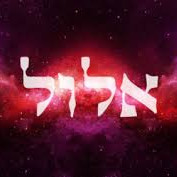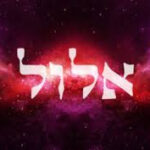Rosh Chodesh Elul, 5779

By Rabbi Ora Weiss
Restorative Judaism
Boston, MA
One of the great gifts of Judaism is its exquisite ability to teach us to tune in and use the energy of each month. The energy of Elul offers us unique support. But, let’s make sure we’re all on the same page when we speak of energy – so, a short explanation:
Everything – and I mean everything – is energy. Just in different forms, and different frequencies. When I say frequency, it is that everything is vibrating at different rates. The different forms of energy include matter – such as the earth (remember E=mc2? – matter is just densed-down energy), light, humans and thoughts. Time itself is not homogeneous, but rather flows with different qualities of energy, different frequencies, at different times.
Judaism recognizes that each month has different energies and qualities. The Bnei Yissaschar notes that chodesh – month – can be understood as chidush – renewal, (or, even entirely new!) That is, something new comes into being with each month, different flows of energy from God given to us to affect change and growth.
Elul has a very special energy: it gifts us with a foundation from which to do a unique shift in consciousness, allowing for a very high-level form of teshuva. What is this magical energy?
Some of the energies of Elul can actually be felt through our senses. The earth’s energies that we can experience in Elul are very comfortable, even sweet. It is not quite the heat of summer not yet the chill of autumn, it is a very balanced time of comfort. We feel supported to move forward in starting teshuva for our Slichot practice, a return to ourselves, to God, to prepare for Rosh HaShanah and Yom Kippur. But more than just an examination of where we went wrong, Elul provides a platform to go deeper. The non-binary nature of the time, not quite summer, not quite fall, without any structured holidays, allows a “time out of time” for reflection, for a deeper look at who we want to be, what the “return” could look like this next year.
Some of the energies of Elul cannot be felt with our senses. They are spiritual and emotional energies that are present for us, if we pay attention. These energies are represented in the rabbinic teaching that during Elul “The King is in the field”. That is to say, unlike the Yamim Nora’im, The Days of Awe in Tishrei when God is on a throne in judgment, during Elul God comes close to be with us where we can meet in an accessible, non-threatening, comfortable place on earth. In the field there are no physical structures to restrict us, no hierarchical structures to interfere with our reflections or our conversations with God, and no holidays to structure how we spend our time or our thoughts. During this time of accessibility and the comfort of the earth, Elul is understood to be Eit Ratzon, a time of favor before God. It is not that God has changed, but that God’s presence and comfort of the energy allows, maybe even inspires us, to forge a more intimate connection and ability to make the shift in returning.
The unique gift of lack of structure during Elul – the lack of prescribed holidays, of any prescription for how to do your return while feeling the emotional and spiritual support of God being present in the field gives an incredible freedom to work on the self, to go as deep as you wish, to say what comes up out loud to God. This field is a wide-open field of love, perhaps of sweet roses. This field might evoke even a desire to dance and to sing, both of which are pathways to reach places inside and to connect with God that words sometimes fail to do. Elul beckons us to be outside, connecting with the earth. Indeed, we are to read Psalm 27 each day during Elul, where the psalmist calls for connection with God “b’eretz Chayim” – “in the living land”. It is a key to know that we can find God by connecting with the earth, the holy, living earth.
And perhaps, in this field, we could come to be playful as children and regain our imagination. In the end, if we are to find our way back to ourselves, not just as we were before we went off the mark since last Yom Kippur, we need to find our shoresh – our pure root self, our highest and best self. Perhaps the only way to realize what that might look like, the self we have not yet seen or dared to know, is to use our imagination.
And when we find that root self, it just might lead us to the Thirteen Attributes of God. (Stay tuned for more on this next month, Tishrei.)
